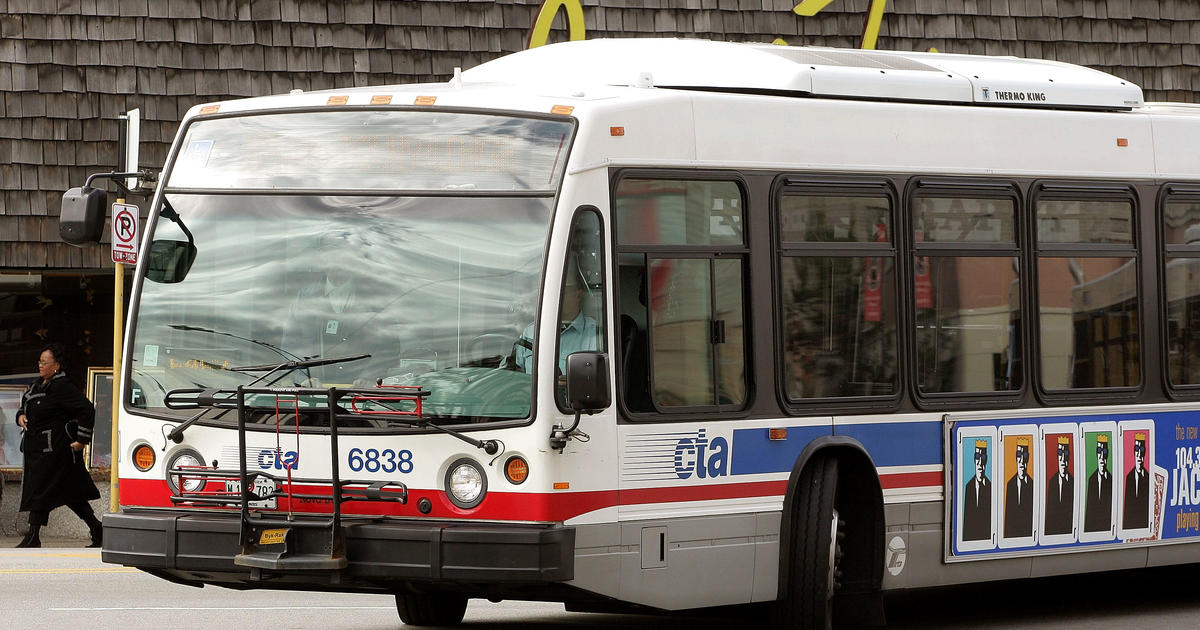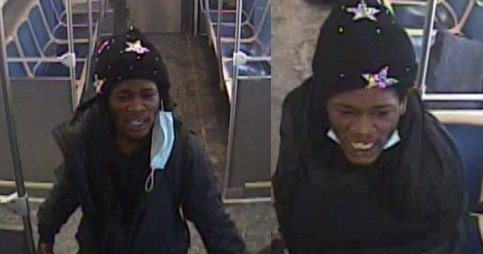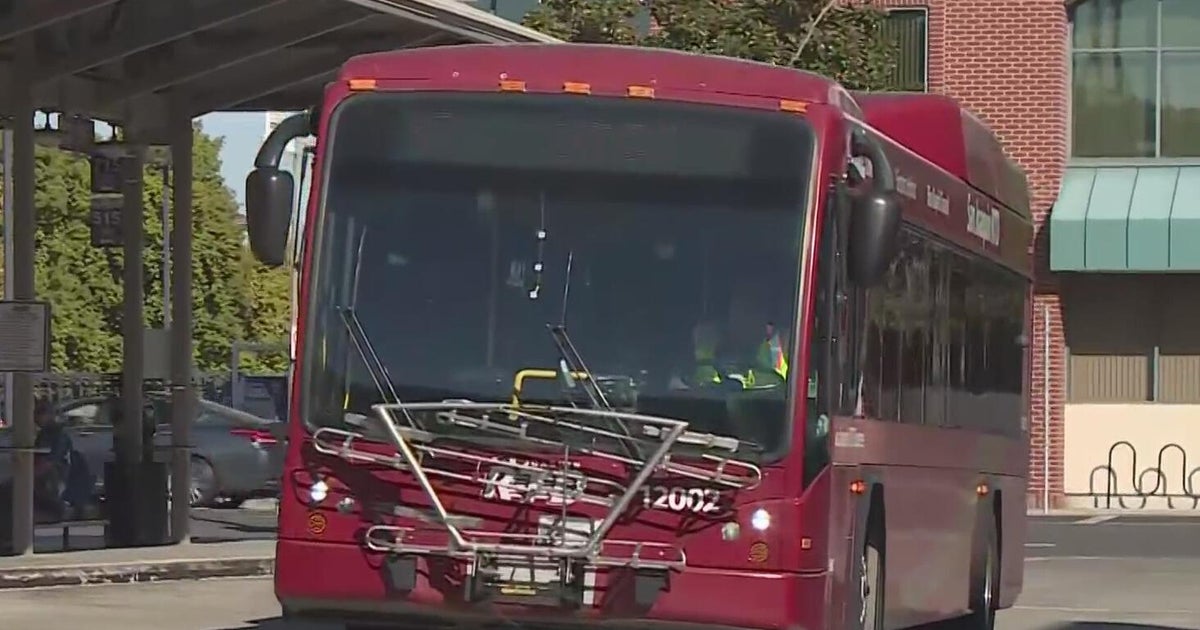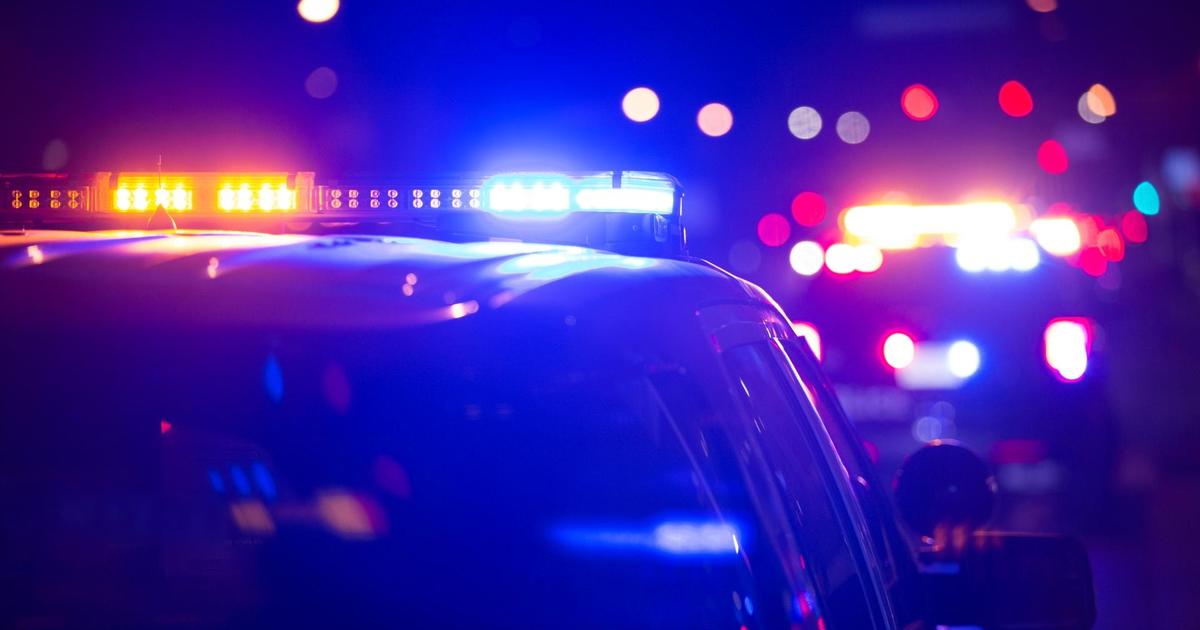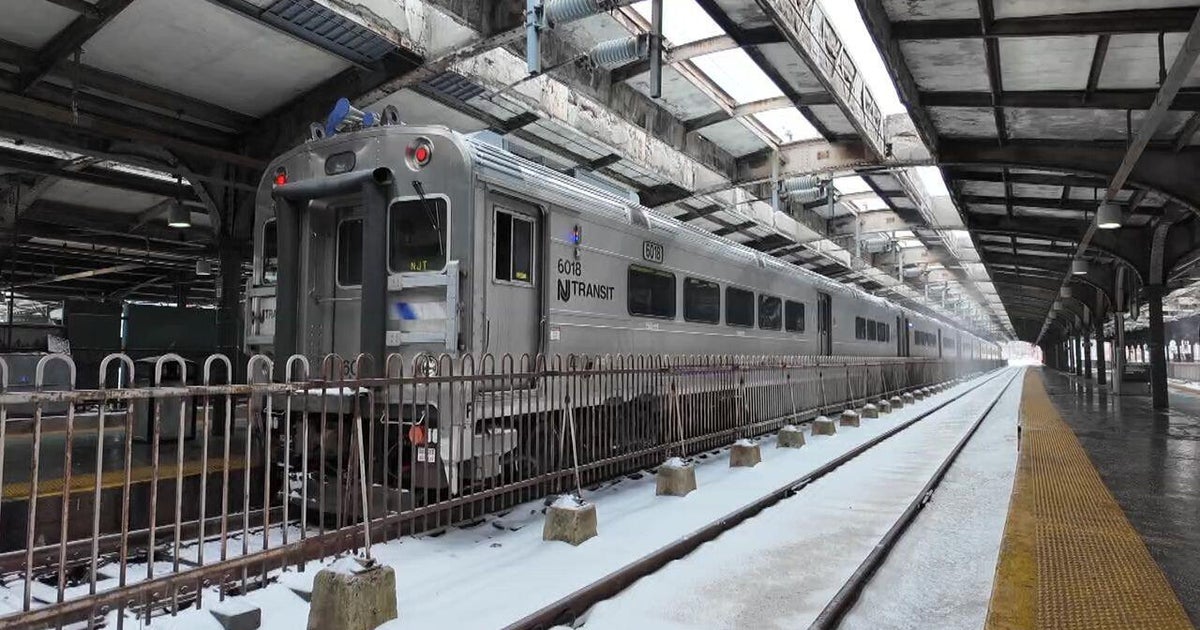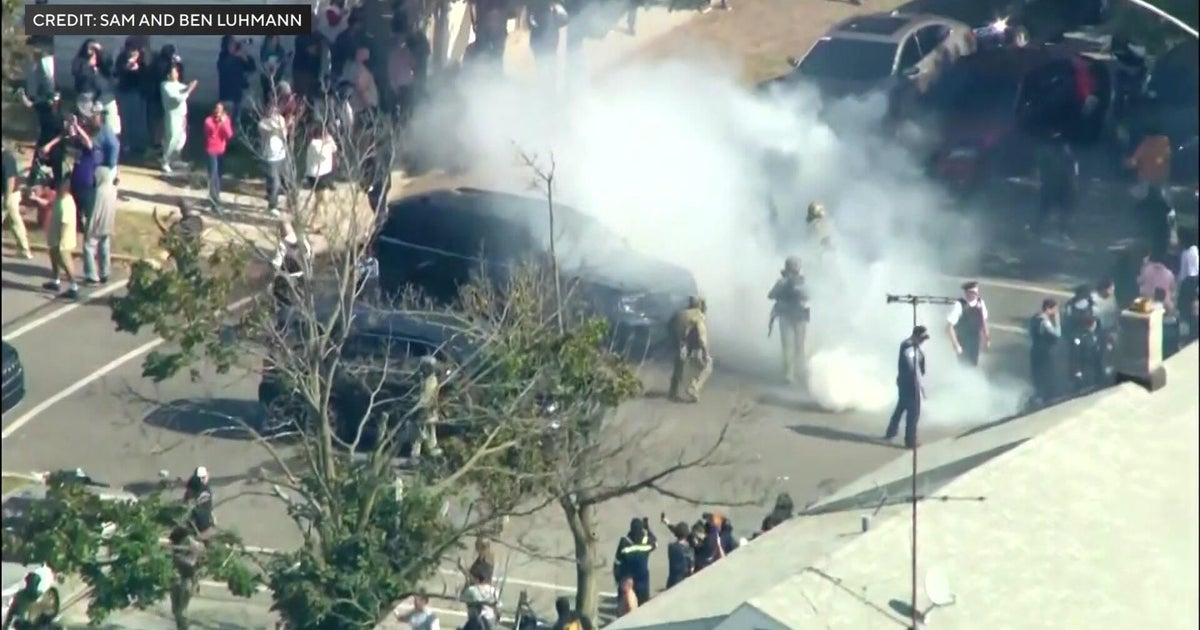Lack of trust in Chicago public transit leads to more drivers, traffic jams
CHICAGO (CBS) – If you drive in the city, chances are you've noticed the bad traffic.
Some say it's worse than ever.
CBS 2 has told you construction projects and alternative routes are contributing factors. But CBS 2's Tara Molina looked closer and learned construction is not the only reason drivers are spending more time behind the wheel.
Packed streets and brake lights - traffic is normal at any time in Chicago, of course, but experts agree it is worse as of late. That's partially because more people are driving or taking rideshares to avoid the public transit system.
"It's been stressful!" said Chicago resident Talia Aloush.
Like so many others, Aloush has been spending more time sitting in traffic, more time stuck on Chicago streets.
"Especially on Fridays too," she said. "I'm coming home from work, getting off the highway, just trying to get home."
And while she was never a train commuter, she said she has a few friends joining her in the daily traffic jam that used to rely on the Chicago Transit Authority.
"They've expressed they've become more uncomfortable," she said. "So people would rather walk. People would rather drive."
Ald. Brendan Reilly (42nd) said, "In a way, I'm glad to see the traffic because it means folks are coming back to work. The concern is how they're coming back."
Reilly said more people are driving because there's a lack of faith in the safety and security of the CTA. He said reliability issues with public transit are a factor too.
"The amount of curbside pickup and drop off in the central business district is unprecedented and I would say that is directly linked to problems we are having with public transit," Reilly said.
CBS 2 examined the numbers.
In 2019, before the pandemic, there were more than 200 million train trips on the L. Those numbers took a deep dive for a few years.
But now?
Ridership is still less than half of what it was, with just over 100 million train trips last year.
Data from Transit App, a private company that tracks app opens across the country, show the CTA is on part with other public transit agencies post-pandemic. The data show similar trendlines in New York City, Los Angeles, San Francisco, and other cities. This is not ridership data, but estimated usage.
So what's being done to change that and address everything contributing to downtown gridlock? Reilly said there are private conversations happening on the city level addressing increased traffic.
Responses CBS 2 received from city departments lacked any real detail. A spokesperson for the Chicago Department of Transportation said they're working to "coordinate activities and projects impacting the public way and minimize the impact of traffic delays."
A spokesperson for the city's Emergency Management Office said they host weekly meetings to "discuss the pending and upcoming projects and how it might affect traffic."
"We need CDOT and OEMC to help contribute to the solution here and that means getting involved, hands-on with some proactive traffic management," Reilly said.
CBS 2 started asking the CTA about the issue late last week with several follow-up requests for a comment. The agency still has not responded.
Read CDOT's full statement:
"The Chicago Department of Transportation (CDOT) works closely with other city departments and agencies to coordinate activities and projects impacting the public way and minimize the impact of traffic delays. In addition to participating in weekly traffic meeting with OEMC and other stakeholders, CDOT's Project Coordination Office (PCO) coordinates right-of-way activities of the City's infrastructure departments with utility companies to eliminate duplicative work, save resources, and reduce the amount of time Chicago's streets are obstructed due to construction.
CDOT has also been coordinating closely with the Illinois Department of Transportation ahead of and during IDOT's Kennedy Expressway project, including improving traffic signal timing and developing detour timings for work that will require select ramp closures.
CDOT has been implementing an accelerated schedule for the ongoing resurfacing of North DuSable Lake Shore Drive (DLSD) between LaSalle Drive and Lawrence Avenue. The project includes extended evening and overnight hours, in addition to off-rush daytime work, to limit disruptions to the public. While the project is scheduled to be completed by mid-June, CDOT and our contractor have been working aggressively and anticipate work will be completed ahead of schedule. You can find the latest traffic impacts for the project at Chicago.gov/CDOT
CDOT monitors traffic volumes and speeds on City arterial streets through a variety of sources, including data from traffic, speed, and red light cameras, and third-party GPS feeds. Congestion information and average traffic counts are published on the Traffic Tracker website, which shows real-time traffic conditions on City arterials: https://chicagotraffictracker.com/"
Read OMEC's full statement:
"Construction projects, major special events, sporting events, parades, airport traffic, among others are coordinated weekly with city departments, agencies, utilities, etc. during weekly City of Chicago Traffic Meetings held at OEMC to discuss the pending and upcoming projects and how it might affect traffic. In addition to the Traffic meeting OEMC hosts a deconfliction meeting weekly with partners to coordinate the concurrent events, projects and gatherings taking place throughout the day. OEMC's Traffic Control Aids (TCA) deployments include major special events and sporting events/concerts at Soldier Field, United Center, Wintrust Arena or Northerly Island, among others. Examples of large-scale events and parades covered by TCAs include the Chicago Marathon, Bike the Drive, Lollapalooza, Suenos Fest, Riot Fest. the Pride Parade, the Thanksgiving Parade and the St Patrick's Parade. TCAs are also deployed at O'Hare and Midway Airports. TCAs do not direct traffic during rush hours unless it is associated with an event. On major construction projects and only if available TCAs may assist with constructions projects during the first few days until drivers get used to the CDOT signage and barricades. Please note that this is rare and only if the aforementioned special events are properly staffed first.
OEMC works to communicate traffic disruptions to the public through media advisories, press releases, social media, Notify Chicago and CHIBIZ alerts and encourages the use of public transportation as an option. Due to the Kennedy/Edens Expressway construction, we want to remind motorists they may experience delays and increased traffic on local area streets as drivers find alternative routes to avoid impacts of the project. For complete details on the construction project, visit the Illinois Department of Transportation (IDOT) website at Idot.illinois.gov/projects/Interstate-90-Kennedy-Bridge-Study "


